 In January 2009, I was introduced to the wonderful world of David Mitchell by a friend, who lent me the surreal number9dream - a book I absolutely loved. She proceeded to lend me Cloud Atlas next, and it's been sitting abandoned on my unread shelf for about a year now, as I've been reluctant to pick it up for a myriad of reasons - book bloggers everywhere rave about it calling it a favourite, it's considerably chunky at 529 pages, and, well, it's Mitchell's most acclaimed book yet.
Anyhow, I finally picked it up about a week back, and rode the long roller-coaster that is this book - it's a heck of a ride, you're almost begging for it to finish (as, all said and done, it is a difficult book to read), but when you eventually do turn the last page, you want to experience it all over again.
In January 2009, I was introduced to the wonderful world of David Mitchell by a friend, who lent me the surreal number9dream - a book I absolutely loved. She proceeded to lend me Cloud Atlas next, and it's been sitting abandoned on my unread shelf for about a year now, as I've been reluctant to pick it up for a myriad of reasons - book bloggers everywhere rave about it calling it a favourite, it's considerably chunky at 529 pages, and, well, it's Mitchell's most acclaimed book yet.
Anyhow, I finally picked it up about a week back, and rode the long roller-coaster that is this book - it's a heck of a ride, you're almost begging for it to finish (as, all said and done, it is a difficult book to read), but when you eventually do turn the last page, you want to experience it all over again.
The book comprises of six independent stories, that span centuries and the atlas, of which five are told in "halves," revolving around the central tale of the post-apocalyptic future, where humans are living as savages, after The Fall. In the first set of "halves", which goes chronologically, each story is read/seen by a character in the subsequent one. In the second set, the stories start moving backwards, so the characters end up reading/seeing the story that follows. Hence, the opening chapter of the book (the first incomplete half-story) is completed in the last chapter.
The common theme that runs through the book is the presence of a "comet-shaped birthmark" - a distinction present in the protagonist of each story. Does this suggest reincarnation? The existence of the soul across generations? Or, is that merely coincidental?
Souls cross ages like clouds cross skies, an’ tho’ a cloud’s shape nor hue nor size don’t stay the same it’s still a cloud an’ so is a soul. Who can say where the cloud's blowed from or who the soul'll be 'morrow?
The Pacific Journals of Adam Ewing {1850s} : A journal written by an American notary in the Pacific, who befriends an English surgeon as well as a stowaway Moriori. This story is cut off mid-sentence (and comes together nicely as the last chapter)...
Letters from Zedleghem {1931} : A young aspiring bankrupt composer, Robert Frobisher, goes to Belgium to apprentice with a famous composer, hoping to make some easy money, and simultaneously finding some success. Here, he discovers The Pacific Journals in the library...
Not only are there some romantic (and otherwise) twists in the tale, but, as Frobisher details his life in the Belgian estate to an old friend, Sixsmith (in the form of letters), the reader is introduced to Frobisher's biggest work, revolutionary or gimmicky: The Cloud Atlas Sextet.
Half Lives : The First Luisa Rey Mystery {1970s} : We move across the pond for this one, where Luisa Rey is a journalist, and is focusing on a big expose on the Swannekke Island Nuclear Plant in California. Sixsmith is the scientist who gave her the lead for the story, and in time, she reads the letters written to him by Frobisher. Luisa, trying to follow in her father's footsteps, seems to be hellbent on justice (consequentialism), even if it is at the expense of her own life.
The Ghastly Ordeal of Timothy Cavendish {present-day} : The focus shifts to present-day United Kingdom, where Timothy Cavendish is a struggling not-so-moral publisher, but, when he is tricked into admitting himself in an old-age home, with no way out, he starts trying to figure out the best way to escape, which leads to more trouble for him. A manuscript of The First Luisa Rey Mystery was sent to him by an author, and he's contemplating publishing it...
An Orison of Somni 451 {near future} : In this dystopia, where fabricants are slaves to purebloods, Somni 451 has ascended, and managed to develop her own personality, by acquiring immense knowledge. It's a story about the struggle of powers, the violence that emerges and the unfortunate state of things as they stand. She's not a partaker though, merely an observer, who recites her life-story to an Archivist. She was watching the film of Timothy Cavendish, when she was taken away...
Sloosha’s Crossin’ an’ Ev’rythin’ After {Post-apocalyptic future} : Zach'ry is the protagonist here, in a civilisation that considers Somni god, and Ol' Georgie the devil. Zach'ry and his family are savages, in awe of the Smarts, believing that the Soul either reincarnates or gets set to stone. Technology is a myth in this civilisation, and, the people mainly herd goats or the like, living in tribes in forests, fearing invasion and power struggles by the terrifying Kona.
This book is immense - the writing style in each of the stories changes significantly, so much so that they read as completely different stories : from Victorian formal english, peppered with ampersands and other shorthands, to pidgin english which I personally found quite annoying to read. However, each style seems to reflect the age it it set in, appropriately, as well as, the structure of each story seems to be similar to its genre. For example, the Luisa Rey mystery is written in numerous short chapters, much like an airport thriller, whereas, the post-apocalyptic narration is written as a rather long rant.
The common theme that binds these stories together soars above and beyond the comet-shaped birthmark. It's a story about power, domination, and the ultimate quest to rule. The stories stress on the selfishness of people, and how ultimately, this will lead to the inevitable apocalypse.
Yes, the devil shall take the hindmost until the foremost is the hindmost. In an individual, selfishness uglifies the soul; for the human species, selfishness is extinction.
While I enjoyed this book, parts of the stories just didn't grab me, and I was left quite unsure as to what's going on, and how these stories are inter-linked together. Why isn't it just a book of short stories? A much less author might have done that... or, attempted six different novels, with completely different themes. However, Mitchell, managed to tie most of the loose ends together, and left me questioning my own existence, and the power of one individual. It's an ambitious work, but, in my opinion, Mitchell's managed to pull it off surprisingly well.
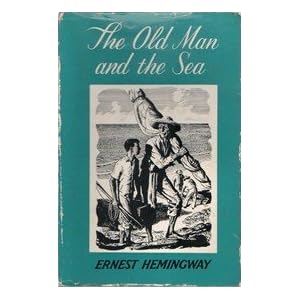 I have an absolutely ancient copy of this book lying around, and it's actually bizarre that I've not read the book yet - it's just 114 pages long! Published in 1974, the book cost just 30p at the time (US$0.45)! The book costs £7.99 now... let's keep that musing for another day!
The Old Man and the Sea is an extremely 'concise' book, for the lack of a better word. The plot is uncomplicated, with minimal dialogue. It's literally about an old man and the sea, as the old man (Santiago) tries to change his luck, after going eighty-four days without catching a fish.
I have an absolutely ancient copy of this book lying around, and it's actually bizarre that I've not read the book yet - it's just 114 pages long! Published in 1974, the book cost just 30p at the time (US$0.45)! The book costs £7.99 now... let's keep that musing for another day!
The Old Man and the Sea is an extremely 'concise' book, for the lack of a better word. The plot is uncomplicated, with minimal dialogue. It's literally about an old man and the sea, as the old man (Santiago) tries to change his luck, after going eighty-four days without catching a fish.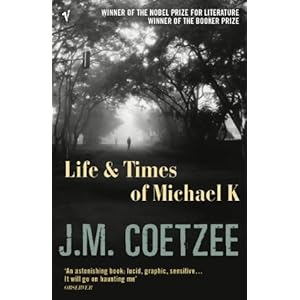 Life and Times of Michael K won the Booker Prize in 1983, and it's been one of Coetzee's books that I've wanted to read for a really long time. The name intrigued me: who is Michael K? And, what is it about his life and times that merits a novel?
Life and Times of Michael K won the Booker Prize in 1983, and it's been one of Coetzee's books that I've wanted to read for a really long time. The name intrigued me: who is Michael K? And, what is it about his life and times that merits a novel?
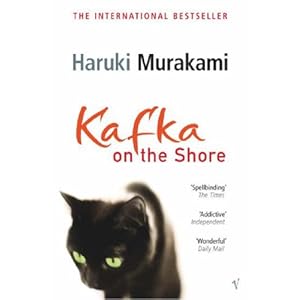 Surrealism. I've reached the conclusion that it's the only word that can be used to describe Murakami's books. Kafka on the Shore is no exception. Leeches and fish rain down, there's a character called Johnnie Walker, and another called Colonel Saunders (of Kentucky Fried Chicken fame), a mysterious childhood "accident" results in one of the characters being able to speak to cats, and there's a portal to a parallel universe.
The book follows two characters in interleaving chapters: Fifteen year old runaway, Kafka Tamura and Nakata, an elderly man who is considered "dumb" by most as he is unable to read or write. While neither of them are aware of the other's existence, there's a greater (almost supernatural) force that connects them.
Surrealism. I've reached the conclusion that it's the only word that can be used to describe Murakami's books. Kafka on the Shore is no exception. Leeches and fish rain down, there's a character called Johnnie Walker, and another called Colonel Saunders (of Kentucky Fried Chicken fame), a mysterious childhood "accident" results in one of the characters being able to speak to cats, and there's a portal to a parallel universe.
The book follows two characters in interleaving chapters: Fifteen year old runaway, Kafka Tamura and Nakata, an elderly man who is considered "dumb" by most as he is unable to read or write. While neither of them are aware of the other's existence, there's a greater (almost supernatural) force that connects them. Note: Kafka on the Shore is the first Murakami I ever had on my shelf. It was given to me as a present sometime in 2008, and I kept "saving it" for the right occasion. I planned on reading it when I went on
Note: Kafka on the Shore is the first Murakami I ever had on my shelf. It was given to me as a present sometime in 2008, and I kept "saving it" for the right occasion. I planned on reading it when I went on  "Charming" - That's the first word that came to mind when I turned over the last page of this novella. I haven't seen the Audrey Hepburn movie, so I didn't really know much about the plot (maybe I really do live in my own little cocoon) prior to reading the classic.
There's Holly Golightly, who gets the star billing, as the writer recounts memories of his glamourous neighbour many years later. Holly Golightly is a young woman, drifting through life in New York in the 1940s: the bars, the martinis, parties, the social scene. A complex character, who's a wonderful combination of being naive and stubbornly independent, she keeps her friends close yet at a distance.
"Charming" - That's the first word that came to mind when I turned over the last page of this novella. I haven't seen the Audrey Hepburn movie, so I didn't really know much about the plot (maybe I really do live in my own little cocoon) prior to reading the classic.
There's Holly Golightly, who gets the star billing, as the writer recounts memories of his glamourous neighbour many years later. Holly Golightly is a young woman, drifting through life in New York in the 1940s: the bars, the martinis, parties, the social scene. A complex character, who's a wonderful combination of being naive and stubbornly independent, she keeps her friends close yet at a distance. I was born twice: first as a baby girl, on a remarkably smogless Detroit day in January of 1960; and then again as a teenage boy, in an emergency room near Petoskey, Michigan, in August of 1974.
So opens Eugenides' epic novel, Middlesex. Calliope "Cal" Stephanides was declared a girl when she came into this world, against the odds. Her grandmother's spoon (which had successfully predicted the sex of previous unborn children) had swung indicating a son would be born, but, Calliope's father begged to differ saying, "it's science" - well, maybe so, but, fourteen years later (despite being raised as a girl), the Stephanides family learnt that "Cal" had a 5-alpha reductase deficiency, which resulted in the doctor figuring a girl had been born, not a boy.
I was born twice: first as a baby girl, on a remarkably smogless Detroit day in January of 1960; and then again as a teenage boy, in an emergency room near Petoskey, Michigan, in August of 1974.
So opens Eugenides' epic novel, Middlesex. Calliope "Cal" Stephanides was declared a girl when she came into this world, against the odds. Her grandmother's spoon (which had successfully predicted the sex of previous unborn children) had swung indicating a son would be born, but, Calliope's father begged to differ saying, "it's science" - well, maybe so, but, fourteen years later (despite being raised as a girl), the Stephanides family learnt that "Cal" had a 5-alpha reductase deficiency, which resulted in the doctor figuring a girl had been born, not a boy.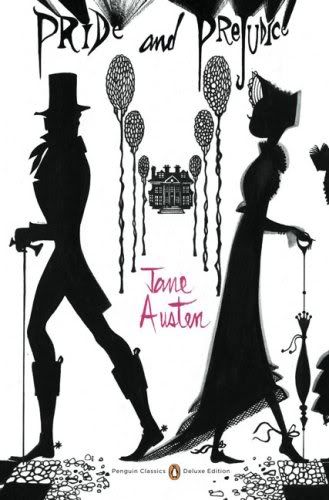 Mee
Mee 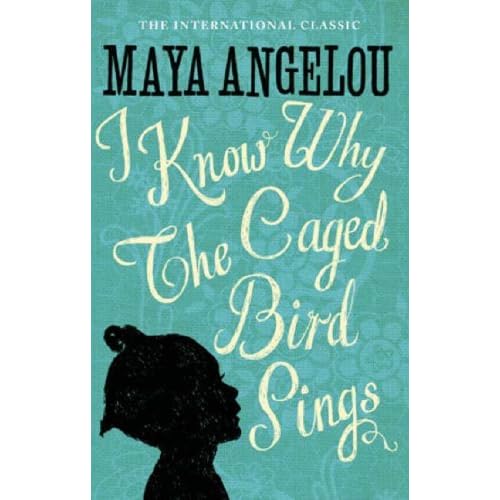 I've wanted to read this book for ages, simply for the title, which is one of the most beautiful titles I've ever come across. So, I finally picked it up, and it's probably one of the most beautiful autobiographies I've ever read. On reading the blurb, I thought it would be similar to the Pulitzer Prize winning The Color Purple. While both books have a prominent thread of racism running through, the similarities end there.
I Know Why The Caged Bird Sings is the coming-of-age story of Maya Angelou, born Marguerite Ann Johnson, set in Stamps (Arkansas), St. Louis and San Francisco. Initially, she lives in Stamps with her brother, Bailey, her grandmother who she calls Momma, and her Uncle Willie. Momma, a no-nonsense unemotional religious Christian, owns the only store around, and is respected and well-liked by all - whites and blacks. While their parents are in California (doing goodness knows what), Momma brings the two children up, with proper morals and values. In fact, when Maya uses the phrase "by the way" passingly, she is admonished for using the Lord's name in vain. And she cannot admit to liking Shakespeare, as he was white.
I've wanted to read this book for ages, simply for the title, which is one of the most beautiful titles I've ever come across. So, I finally picked it up, and it's probably one of the most beautiful autobiographies I've ever read. On reading the blurb, I thought it would be similar to the Pulitzer Prize winning The Color Purple. While both books have a prominent thread of racism running through, the similarities end there.
I Know Why The Caged Bird Sings is the coming-of-age story of Maya Angelou, born Marguerite Ann Johnson, set in Stamps (Arkansas), St. Louis and San Francisco. Initially, she lives in Stamps with her brother, Bailey, her grandmother who she calls Momma, and her Uncle Willie. Momma, a no-nonsense unemotional religious Christian, owns the only store around, and is respected and well-liked by all - whites and blacks. While their parents are in California (doing goodness knows what), Momma brings the two children up, with proper morals and values. In fact, when Maya uses the phrase "by the way" passingly, she is admonished for using the Lord's name in vain. And she cannot admit to liking Shakespeare, as he was white. It's not often a book leaves me completely speechless. Wowed. Awestruck. Absolutely blown away. But then again, it's not often that I come across a book like Michael Cunningham's The Hours. Both,
It's not often a book leaves me completely speechless. Wowed. Awestruck. Absolutely blown away. But then again, it's not often that I come across a book like Michael Cunningham's The Hours. Both,  In January 2009, I was introduced to the wonderful world of David Mitchell by a friend, who lent me the surreal
In January 2009, I was introduced to the wonderful world of David Mitchell by a friend, who lent me the surreal 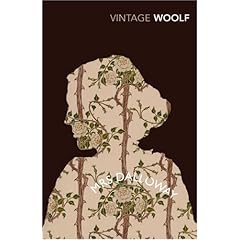 Claire {@
Claire {@ 
 It's the 1860s, and Lant Street, a dodgy street near Southwark Bridge, is inhabited by petty thieves, small-time burglars, piddling swindlers and the like. Here lives Sue Trinder, a seventeen year old, with Mrs. Sucksby (her guardian), and Mr. Ibbs (a man who fences stolen items), along with a bunch of infants, unwanted in this world, who Mrs. Sucksby brings up and introduces to the world of small crime; and, some adolescent pickpockets (or, "fingersmiths", if you like).
It's the 1860s, and Lant Street, a dodgy street near Southwark Bridge, is inhabited by petty thieves, small-time burglars, piddling swindlers and the like. Here lives Sue Trinder, a seventeen year old, with Mrs. Sucksby (her guardian), and Mr. Ibbs (a man who fences stolen items), along with a bunch of infants, unwanted in this world, who Mrs. Sucksby brings up and introduces to the world of small crime; and, some adolescent pickpockets (or, "fingersmiths", if you like).